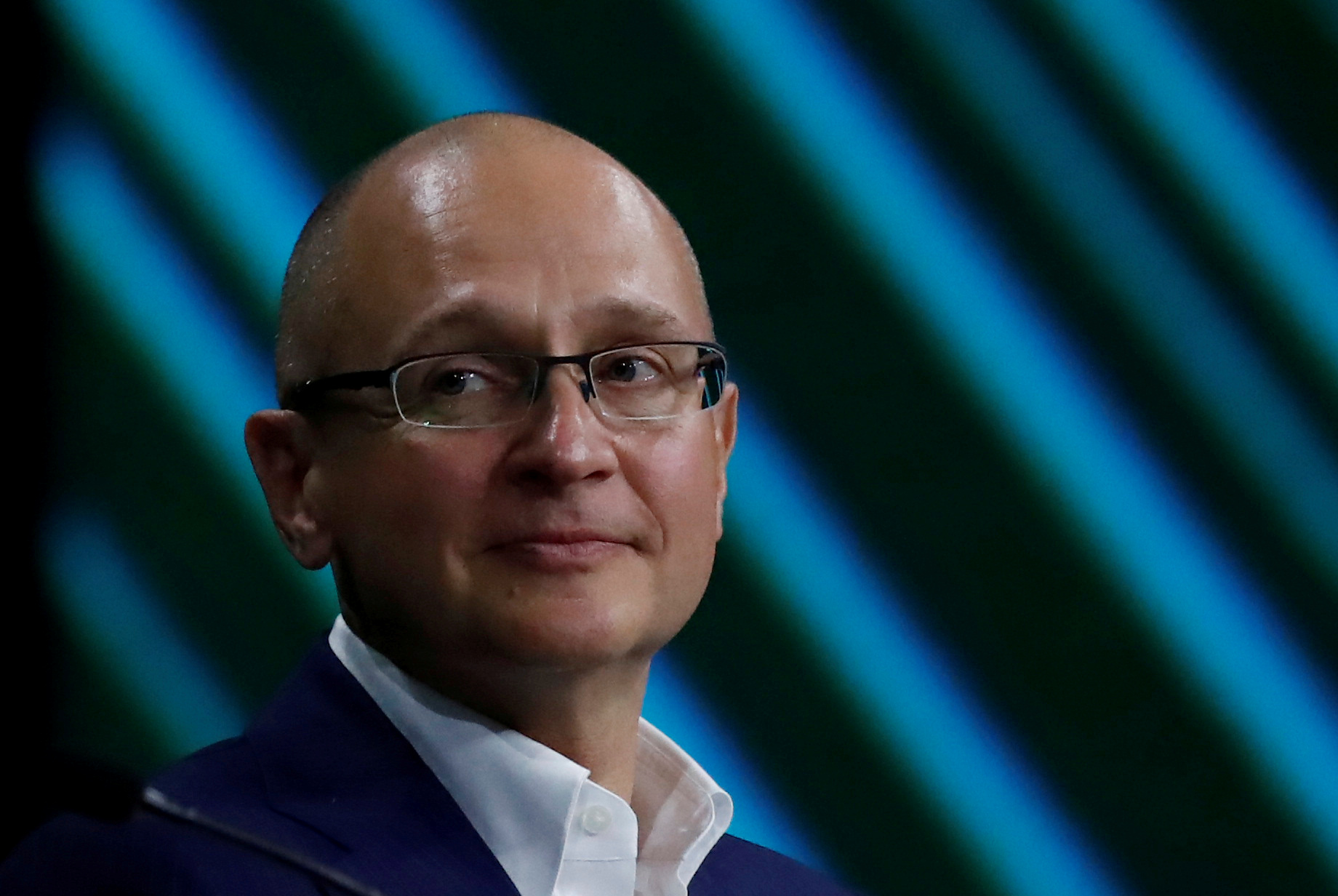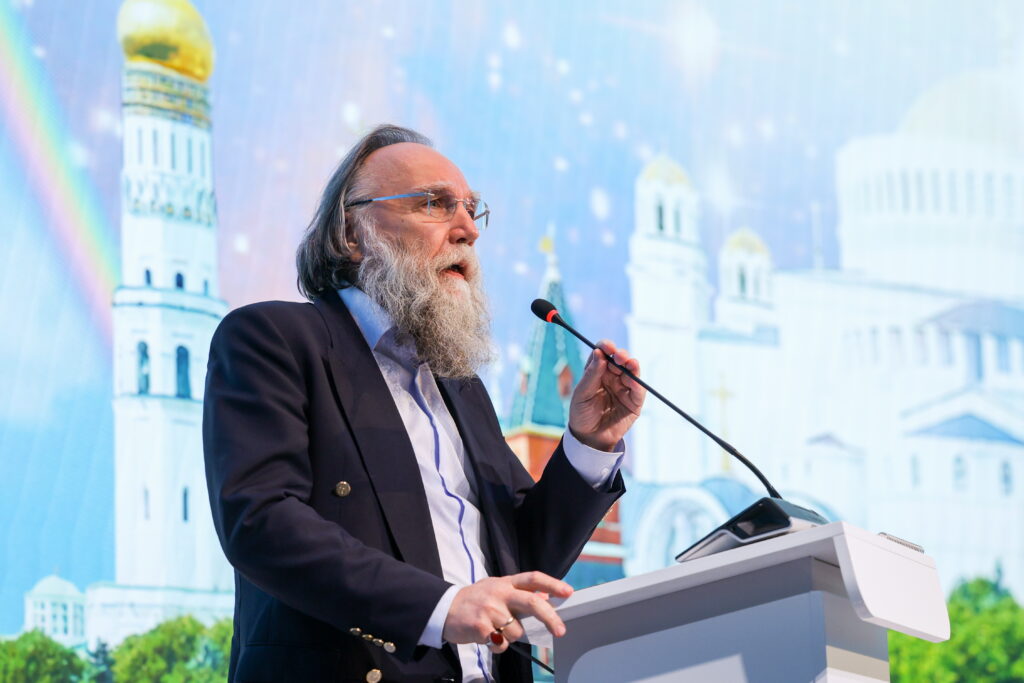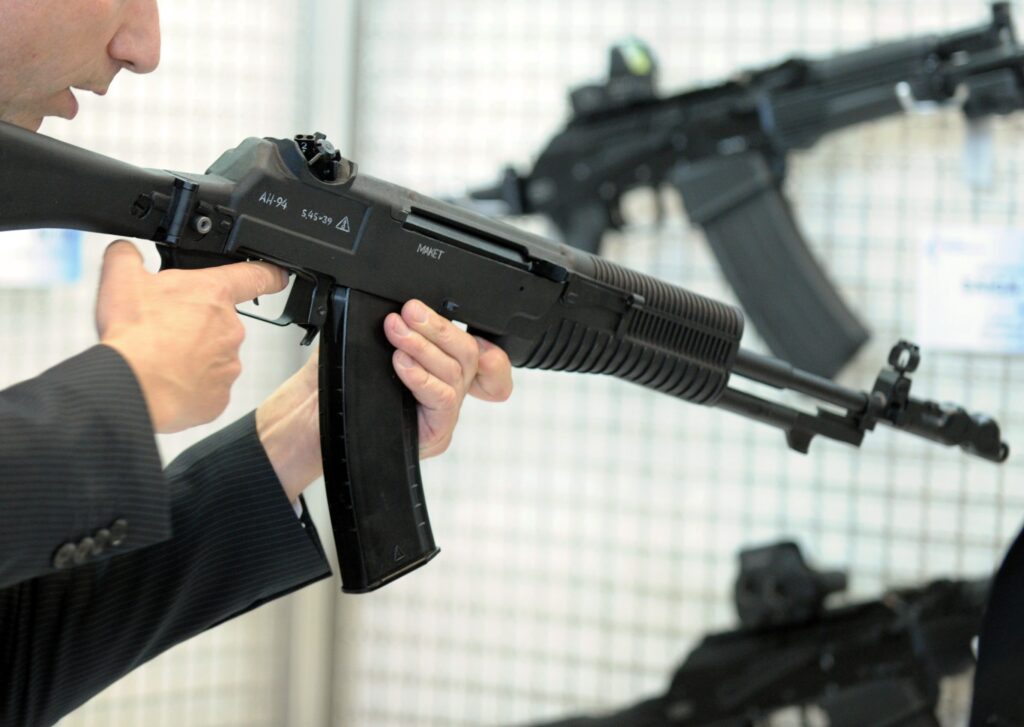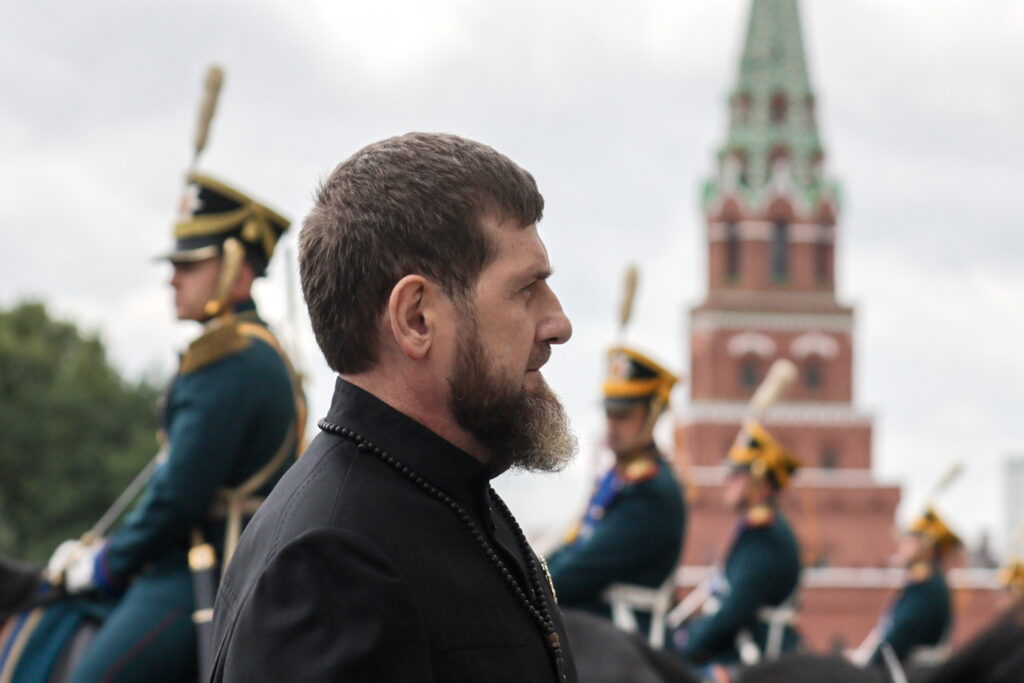Right after war broke out in Ukraine, Sergei Kirienko, already head of the Kremlin’s internal political bloc, expanded his sphere of influence and sought to carve out a role as a publicly prominent politician. Indeed, three months into the fighting, and Kirienko now oversees the self-proclaimed Donetsk and Lugansk People’s Republics in the presidential administration. (Previously, there was a separate groups of Kremlin officials responsible for these territories.) By making a barrage of landmark political statements and media appearances, Kirienko is shaking off a long-cultivated image of an armchair technocrat without political ambitions. Without doubt, the war has helped him become the most visible and high status frontman of the «party of war.» As a titular head of Vladimir Putin’s domestic political coalition, he is already the «chief politician» of the country. If there is any race on to succeed Vladimir Putin, the head of the domestic political bloc clearly is getting underway.
Technocrat by necessity
Since first becoming deputy head of the Presidential Administration in 2016, Sergei Kirienko has cultivated the image of a technocratic official who works effectively, delivers KPIs his leadership needs in the form of election results, and rarely appears in public. This is the role of a political manager who deploys political resources in the interests of the customer, without pretending to be a politician in the classical sense (that is, a subject who fights for power). Kirienko spoke at volunteer congresses, or training events, seminars for officials as a coach or mentor, but these statements were never political. He was seen to introduce a corporate management style into the Kremlin-controlled political system, a style he picked up from earlier corporate experience leading the state corporation Rosatom. He also pushed for corporate training for Kremlin appointees or regular team building for vice-governors. As a result, leading positions in systemic parties began to be occupied by political technologists working with the Presidential Administration. Throughout, Kirienko looked like a chief engineer of a political machine, working in the interests of President Vladimir Putin.
But it was just an artificially constructed, deliberately depoliticized image. In the 1990s and early 2000s, Sergei Kirienko was a quite public politician. Not least as a prime minister, then one of the co-chairs of the Union of Right Forces party (working former vice prime-minister Boris Nemtsov, who was assassinated in 2015). Articulating liberal convictions, Kirienko participated in elections and fought for the post of mayor of Moscow, which is highly significant in the Russian hierarchy. In the mid-2000s, the vertical began to strengthen and Kirienko became one of its builders — in the position of presidential plenipotentiary in the Volga district, he fought against the independence of the national republics, and even achieved noticeable success here. Kirienko quickly saw how in the new realities of Putin’s system, it is better to be in the shadows, and definitely not shining. So he behaved accordingly, both in the plenipotentiary position, and as head of the Rosatom state corporation, and until recent months, in the chair of the first deputy head of the Presidential Administration.
New rules for supervision
In the first week of May, Kirienko made a rather flamboyant public statement about the fight against «Nazism» during a trip to the city of Mariupol, mostly occupied by Russian troops.
«The servicemen of the DPR and LPR, the servicemen of Russia are completing the struggle that our fathers, grandfathers and great-grandfathers waged against Nazism. It is no coincidence that the Banner of Victory has become the same symbol in these territories as the banner of Russia, the banner of the DPR and LPR. The Banner of Victory has become a symbol of the fight against Nazism and fascism. For Russia, this is the mission of the country — to ensure a world free of Nazism. Now one more symbol has been added to the list — grandmother Anya, grandmother Anna. She became a living symbol of the continuity of generations, the continuity of the struggle against Nazism and fascism. She became a grandmother for the entire Donbass, for the whole of Russia,» Kirienko said during the opening in Mariupol of a monument to one of the spontaneous symbols of Russia’s military operations in Ukraine — a grandmother who came out to meet the Russian military with a Soviet flag. In the Russian media picture of the coverage of the «special operation», the event is significant.
Prior to this, the RBC newspaper reported that Kirienko had been offered oversight of the self-proclaimed DPR and LPR, relieving Dmitry Kozak. Meduza wrote that Kirienko’s internal policy department, headed by Andrey Yarin, is hiring political technologists to work in «civilian-military» administrations in territories occupied by Russian troops and hold referendums on joining «people’s republics» to Russia. Official reports about the new status of Kirienko were not published; and indeed, the presidential press secretary Dmitry Peskov denied the redistribution of powers. Yet Kirienko, accompanied by Yarin in military camouflage, actually confirmed this news with their public appearance in the Donbass. Neither Kozak, nor his predecessor as the curator of the DPR and LPR, Vladislav Surkov, officially went to the «People’s Republics». News about their appearance there, with reference to unofficial data, was published only by the Ukrainian media.
Formally and publicly, Kozak and Surkov organized negotiations in the Minsk format. Kirienko immediately staked out the territory with his appearance on camera, and even delivered a speech. Prior to that, with similar, and again, political statements, uncharacteristic for acting Kremlin officials, he spoke at the forum of schoolchildren «Strength in Truth.»
«We have already ensured the victory over Nazism once,» Kirienko told the forum. «Our people, our country will definitely do everything to ensure that Nazism can never again raise its head, not only here, in Russia, but nowhere else in the world.»
From top political manager to top political figure
An exception to the rule that officials should very rarely speak out on political topics may be the loyalist statements of the former supervisor of the Kremlin political bloc, and now the speaker of the State Duma, Vyacheslav Volodin (‘No Putin, No Russia.’) But Volodin said that at a discussion event, a prominent policy making forum called «Valdai», where the staff of the Presidential Administration and the government are allowed certain liberties. Kirienko is making politically charged speeches either at specially prepared, equally politically charged events, or at politicized events.
There are now new rules of the game of Russian politics. And a «party of war» publicly making statements is well placed to occupy a more advantageous position. Kirienko quickly understood and mastered this. Silent for several weeks after the start of the invasion, the «technocrat» became one of the main «hawkish» public politicians. Kirienko literally goes to the front line and delivers ritual speeches about Russia’s mission to fight Nazism. The chief «for politics» becomes, in a sense, the «chief politician» (after Vladimir Putin, of course). Statements of a similar degree are made by Deputy Chairman of the Security Council, head of United Russia, Dmitry Medvedev, and State Duma Speaker Vyacheslav Volodin; but they are all these days operating at a lower level in the vertical of power. Kirienko makes decisions on domestic policy, and now on Donbass, while Medvedev and even Volodin do not. Kirienko arrives at the front, surrounded by his subordinates; Volodin and Medvedev stay put. Andrey Turchak, secretary of the United Russia General Council, turns out to be in his retinue. This is also the publication of a previously concealed state of affairs. Party functionaries are indeed subordinate to the Kremlin’s internal political bloc, and now we see with our own eyes who is in charge here. The head of the Department of Internal Policy (UVP), Andrei Yarin, also a subordinate of Kirienko, who has long been considered close to the security forces, and specifically to the FSB, puts on a military uniform during a visit to the Donbass. And this is also a new degree of publicity.
The Kremlin’s internal political bloc will have to work in Donbass in close conjunction with the security forces that control the military-civilian administrations and will also participate in the preparations for the «referendum». Kirienko admits this, which is why he is accompanied by Yarin in camouflage — not by his close associate, the head of the Kremlin department for ensuring the activities of the State Council, Alexander Kharichev. In 2016, during his appointment as first deputy head of the Presidential Administration, Kirienko failed to put Kharichev at the head of the UVP; instead he was outflanked by an «observer» from law enforcement agencies. For several years, the supervisor of the political bloc still diverted the key (and most profitable) areas of work away from Yarin — first gubernatorial elections, then elections to legislative assemblies, then campaigns in large municipalities. The UVP was left with operational work in the regions, routine interaction with parties and fighting the opposition. Now, Kirienko is ready to rely on Yarin; he understands that in wartime, the security forces have more influence and scope for action: he is trying to establish communication with them.
Kirienko is also working close to siloviki interests. The Presidential Administration wants to build a network of «information-political» workers in Russian ministries, departments, state corporations and large state-owned enterprises. They will clarify the general line of the Kremlin and increase the loyalty of workers to the authorities. According to the logic of the vertical, the same posts will quickly appear in regional state structures, and they will again be locked for the political block of the Presidential Administration. This is a layout familiar from Soviet times — the secretaries of the party cells of the CPSU were responsible for policy in the executive branch and the economic sector. Now their role will be performed by new political instructors. Most likely, they will not limit themselves to education and increasing loyalty but will also report disloyal people to the «right place». Kirienko thereby strengthens the vertical and, moreover, expands the scope of his supervision to combat the disloyal. The new model of political supervision he is building is simultaneously reminiscent of the Soviet party vertical, which is replaced by the bureaucratic vertical, and the corporate style of control. Kirienko was strongly influenced by methodologists, who started just in the days of the USSR, and then successfully became a kind of coaches and trainers for managers and politicians, including Kirienko himself. The system of communication between the Kremlin and Russian citizens (this is how we can more accurately characterize what we call «Russian politics») is changing towards greater control and, at the same time, greater publicity of its leader. From an engineer, he turns into one of the main Russian politicians.
Kirienko like other representatives of the «party of war» sees new opportunities in the situation. He, unlike his «colleagues» in the party, has something to lose and has room to move — for example, to the head of the Presidential Administration or even prime minister, but he also raises the stakes and aggravates the situation. Kirienko’s behavior in wartime looks like the most complete bid in the race for Putin’s successors. The head of the domestic political bloc, holding a high post, does not just speak, but acts (unlike the same Medvedev and Volodin). He has a fairly successful managerial experience and is ready to remind Putin of his public political experience. Kirienko touches on sensitive strings for the president; he talks about Nazism and Russia’s special mission. Most likely, this application will be among the priorities for Putin.
The head of the Kremlin’s political bloc understands what the president likes and is ready to articulate it, right down to the choice of vocabulary. Putin calls the collapse of the USSR a «tragedy» and «the collapse of historical Russia»; Kirienko opens a monument to an old woman under a red flag. Putin talks about «neo-Nazis» and Kirienko continues this line. If necessary, the liberal in the past will put on a khaki uniform after his subordinate Yarin. And in case of a hypothetical change in the situation (for example, the departure of Vladimir Putin), Kirienko has in reserve both a strict technocratic jacket and a public political past.










